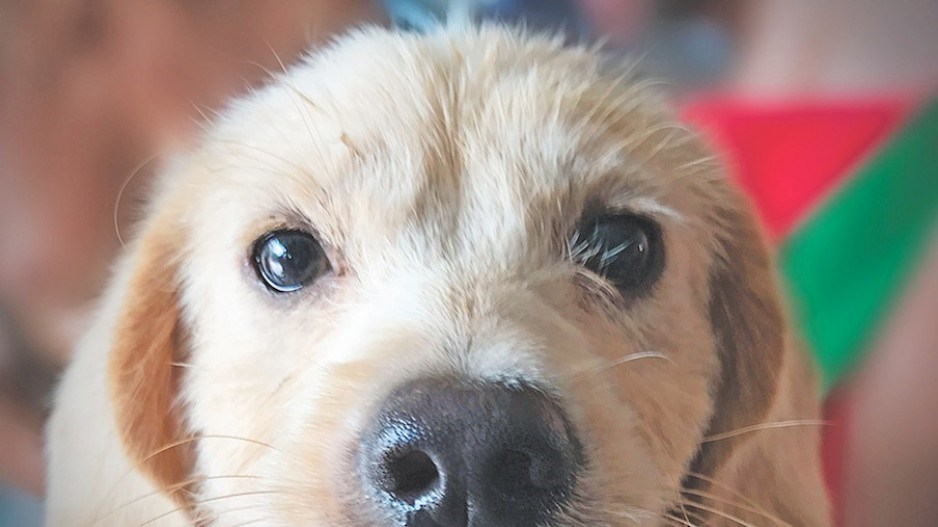As the COVID-19 pandemic confined most people to their homes, something interesting began happening: many began looking for dogs to adopt.
“I handle the preliminary screening on applications, and we see it on every application we get these days,” said Marybeth Harrison, board member and volunteer with Langley-based Loved At Last Dog Rescue (LALDR), a society facilitating the adoption of dogs rescued from international shelters. “Every application has something saying they are now working from home, so they have the time now to have a dog.”
Harrison said that her group of 250 volunteers is seeing as many as 20 inquiries/applications a day. Officials say annual adoptions usually number around 300 approved cases in Metro Vancouver.
The ironic juxtaposition is that the COVID-19 outbreak is also squeezing the “supply” end of the equation. With non-essential travel basically shut down around the world, charities like LALDR have no access to flight volunteers – people who agree to “chaperone” an adopted animal while flying between Canada and another country.
Flight volunteers are the primary way LALDR gets dogs from its partner shelters in places like Shanghai, Tehran and Bahrain. Without them, the number of available dogs for adoption in B.C. has fallen to extremely low levels.
Officials say that options like commercial shipping aren’t realistic alternative because many parcel delivery services do not handle animals. Specialized brokers who book cargo flights say it can cost as much as $5,000 to get one animal across the Pacific Ocean on a cargo plane. Travelling with a person is also important for the animal’s well-being.
“What has happened with COVID was, I thought we would have more dogs available because people would be off from work and not have the resources to have a dog. The opposite has happened. Everyone wants a dog, and it is very difficult to find one right now,” Harrison said, noting that her group has had great challenges in trying to bring dogs from shelters in Shanghai and Tehran into North America, although its Seoul route has been very successful due to a grassroots effort on the South Korean side.
The statistics at other shelters also point to this “crunch”: as of June 3, the BC SPCA reports a collection of only eight dogs available for adoption provincewide. Harrison noted that a recent check at the Langley animal shelter found only one dog up for adoption.
“We generally as a rule do have a certain number of local dogs, but with the dog shortage right now, we have no local dogs,” she said. “We have 25 dogs in local foster care right now, and they are all adopted.”
That missed demand is a missed opportunity to save the lives of dogs stuck overseas, Harrison noted, so the society is now stepping up its efforts to court a new demographic to fill in the missing link: cross-border, multinational businesses that Harrison hopes can help LALDR fulfil its “Project 300” initiative to get 300 rescued dogs from a Shanghai shelter to new homes in North America in the next year.
“Business can play a vital role because businesses have people who fly back and forth between Vancouver and Shanghai on a regular basis – maybe not right now – but when things come back, so will they,” Harrison said. “And being a flight volunteer is as easy as adding an extra piece of luggage to your ticket. There’s minimal inconvenience.”
The process, officials say, is simple: a volunteer who is already flying between Shanghai and Vancouver meets the dog and a shelter representative at the Shanghai airport at check-in, brings the dog onto the flight, then gets off in Vancouver to go through a 30-minute agricultural inspection. Harrison said the dog travels only when it has all its required papers – passport, health record and vaccination certificates – so the inspection process on the Canadian side is as straightforward as it gets.
Harrison said she realizes it may be a tough sell for some companies to help, but she added that all it takes is one or two committed corporations to make a few trips each in order for LALDR to reach its Project 300 goal for Shanghai.
“It’s something people can feel good about, and at this time, it’s important that people feel good about the company they work for or buy from. People are looking for companies who are helping and contributing, and I think this is a good way to do that. You are basically saving the life of a dog.” •




